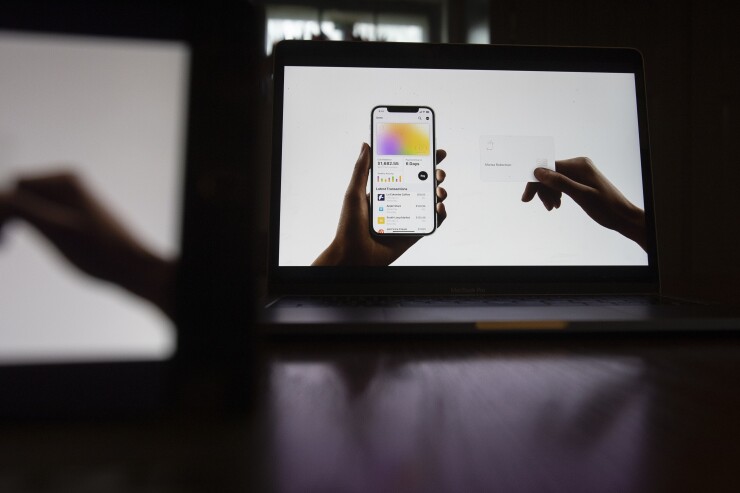
Apple's quest to find a new home for its credit card program may be inching closer to finality.
A spokesperson for
If
"This is a slight negative for Synchrony as it will take away an opportunity for loan growth in the intermediate term," KBW analyst Sanjay Sakhrani said in a research note. "Having said that, we don't believe a win for Synchrony was in the stock and the company will also be able to free up capital for repurchases on an accelerated timeline."
Apple's credit card portfolio is approximately $21 billion in receivables, according to KBW estimates, and could represent about $100 billion in payments volume, which is roughly 1% of Mastercard's volume and 75 basis points of Visa's volume.
Should Visa secure networking rights, the Apple Card portfolio would be "modestly incremental for the company," Sakhrani said.
A final selection would put an end to the high-profile, yearslong saga. Apple has been looking for a company to take over card issuing from Goldman Sachs for more than a year. The two companies have been partnered since 2019, with Goldman serving as first issuer of Apple's card program. The Apple Card served as one of Goldman's inroads to consumer lending, a business line that the investment bank has
Apple's card portfolio is largely attractive due to its high spending velocity and the large concentration of affluent users, but certain nuances have given potential buyers pause.
Apple's aggressive push to get as many of its customers using the card has led to a large concentration of subprime borrowers, which has pushed down profitability on the portfolio. The portfolio is also difficult to service, because customers' billing cycle comes at the end of the month and is not staggered throughout the month.
The rumors come as some of the country's largest credit card issuers





